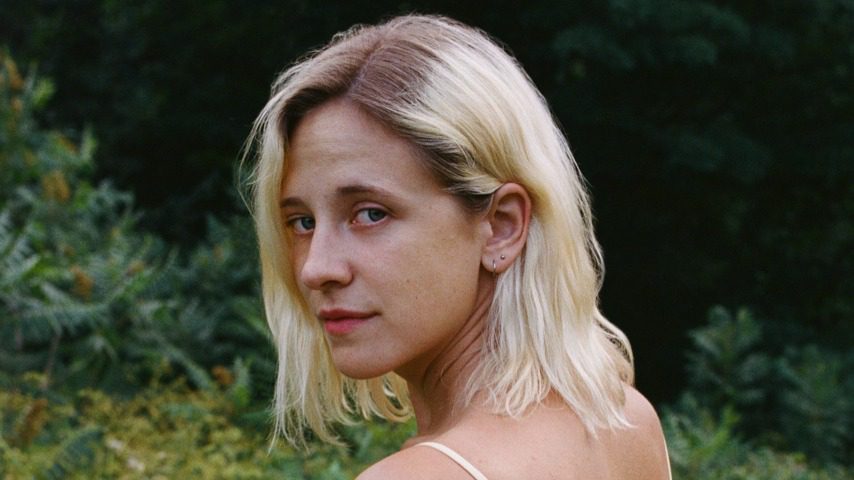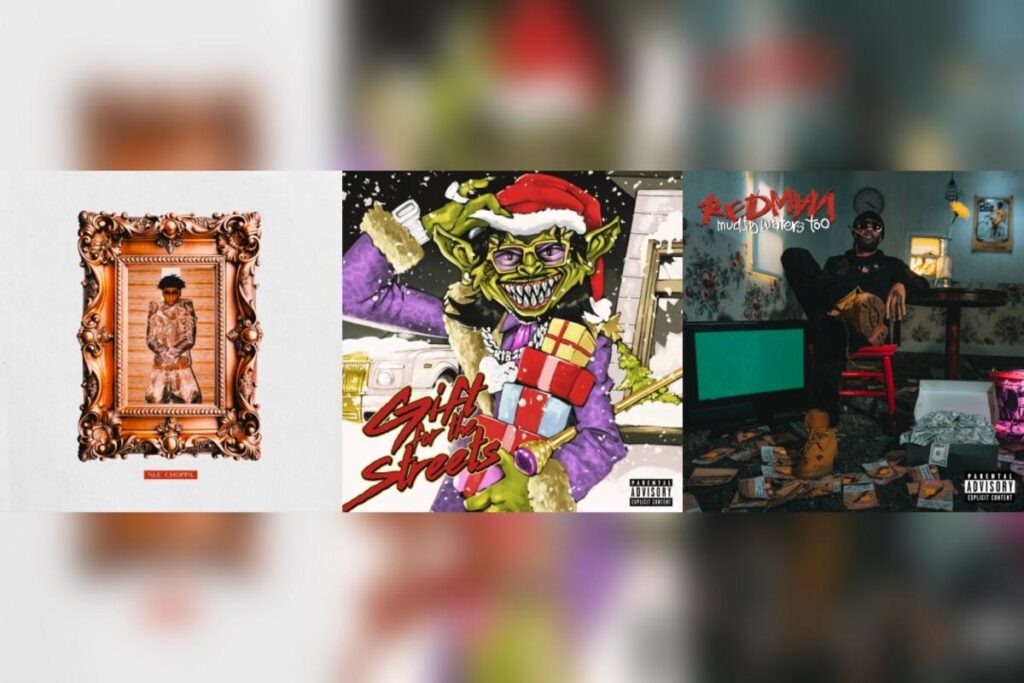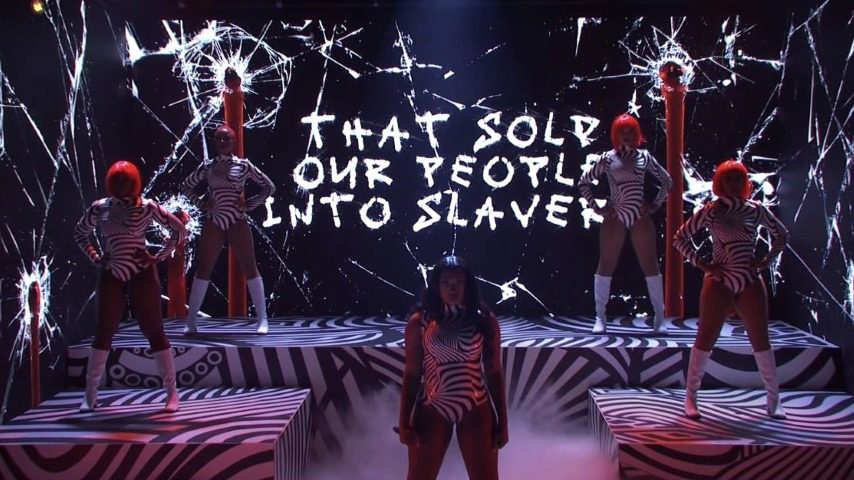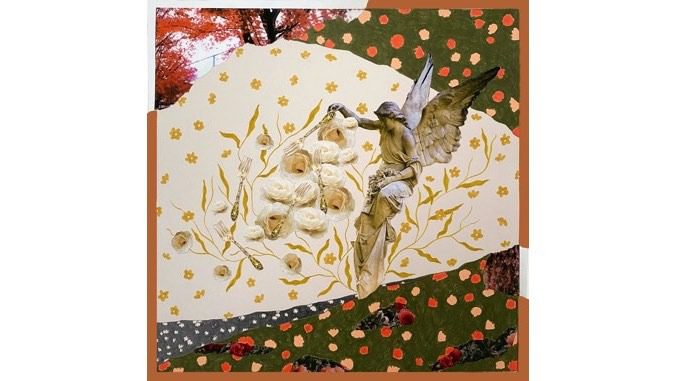For years, Paste has introduced exciting, up-and-coming artists to our readers. This is the return of The Best of What’s Next, a monthly profile column which highlights new acts with big potential—the artists you’ll want to tell your friends about the minute you first hear their music. Explore them all here.
Helena Deland is blanking on the English word for “rollercoaster.” She has it in French—“montagnes russes,” which, for reasons neither of us understand, translates literally to “Russian mountains”—but only after I hear her easy laughter and the click-clack of a keyboard on the other end of the phone does she find it in English. We’re discussing the October release of Someone New, her acclaimed debut album, and therefore the first full-length release from which she’s shared singles. That brings us to the metaphor of the montagnes russes: “It’s less a huge plummet from a different vantage point,” says Deland. “It’s more gradual with releasing singles.” She acknowledges the necessity of marketing her album, but laments that a traditional rollout “takes away from the pleasure of imagining people having access to it all of a sudden.”
The Canadian singer/songwriter’s longing for the excitement of a sudden drop makes perfect sense, given the lengthy road she took to Someone New, one of 2020’s most stunning and meticulously crafted debuts. The record is her first, but to call it her “debut” feels almost misleading—a long while in the making, it follows her 2016 Drawing Room EP, as well as From the Series of Songs “Altogether Unaccompanied,” a series of four EPs she released in 2018. Deland spent two years ruminating on the record, “slowly writing songs and reading, and drawing inspiration slowly, waiting for a kind of ‘aha’ moment,” as she recalls. Meanwhile, she was “on the road maybe a third to half of the time,” touring with Weyes Blood and Connan Mockasin, opening for Iggy Pop at the ARTE Concert Festival in Paris, and collaborating with JPEGMAFIA, who has called her the “Young Thug of indie rock” (“I never asked him specifically what he meant. I felt like he was definitely trying to tell me that he liked what I did”).
Years before she was sharing stages and studios with such “wildly inspiring” peers, Deland was the child of a Québécois father and Irish mother, growing up in Quebec City’s suburbs, where a music career seemed a remote possibility. “My parents definitely have artistic inclinations, but they both have jobs that have nothing to do with the arts,” she explains. “There were zero artists in my surroundings. It was such a small-town vibe that I never met people who did art as a living. So I guess that kind of influenced how realistic it seemed.” Yet music was always present in the Deland family: “My dad is a very modest but very talented pianist and flautist. His side of the family is French-Canadian, and it’s all call-and-response songs during the holidays, and everybody has a really good singing voice. [laughs] Stuff I took for granted before growing up and realizing that was special.” Equally abundant was language: Deland grew up speaking French first and foremost, with only her mother, an ESL teacher, speaking English to her. “I grew up more in French, but then now, my roommates are English speakers and most of my days happen in English,” she says.
Deland’s love of music and language brought her to her current homebase of Montreal at age 20, where she studied literature at Université du Québec à Montréal and eventually progressed from “tinker[ing] around with songwriting” to pursuing music more seriously. “I was finishing up my degree when I started playing music around town,” she recalls. “It’s a small city, first of all. So I feel like getting to know people happens quickly and easily, because there aren’t that many. [laughs] But when you’re aspiring to play music, it’s super encouraging to have a community, people to be inspired by and work alongside.” The city is inextricable from Someone New: Looking back on its making, Deland recalls “the gray Montreal days of winter” and the act of transmuting painful personal growth into music, “giving the discomfort a purpose and building confidence around that.”
She is at home in Montreal when we speak, and intrigued by the thought that one of Someone New’s central considerations—delineating where the self ends and where others’ perceptions begin—plays out in real time when one is being interviewed. “I kind of love being interviewed these days. But just because it gives me the opportunity to talk to someone,” she laughs. “In COVID, that’s a fun thing for sure, like a rare thing, to meet someone over the phone.” Such a connection offers her freedom from isolation, without fear of the judgment that comes with being perceived: “I think the record is a lot about accepting that that’s not in your control on the first hand, and that it’s maybe not even sustainable to care too much.” And for Deland, the power of songwriting lies not only in transcending the need for validation, but also in the ability to shape a narrative beyond one’s own: “I definitely feel lucky to be able to create out of what happens to me, and I try to be, obviously … conscientious of who I’m involving in my songwriting.”
Deland’s belief in the power of writing—that “language can make anything happen, really”—unites her love of literature with her music. Bohemian-Austrian poet Rainer Maria Rilke, Belgian author and relationship therapist Esther Perel, American poet Mary Oliver and literary legend Edgar Allen Poe, to name a few, each make their presence felt on Someone New, like a collection of brilliant lenses through which Deland examines the endless intricacies of human connection. “Truth Nugget” draws inspiration from Rilke’s notion of love as two people alone, together (“I hold this to be the highest task for a bond between two people: that each protects the solitude of the other,” he wrote in 1902), with Deland’s layered vocals a swirling enigma, wreathed in synth over juiced-up guitars as she sings, “I am another solid mystery when it comes to you / Michael, I’m the puzzle in the other room.”
Penultimate Someone New cut “Clown Neutral” pays tribute to Oliver’s “Wild Geese,” evoking a powerful feeling of serenity, as well as the potential energy of possibility, via soft synth hum, gentle electric guitar and Deland’s deeply felt vocals. Where Oliver wrote, “You do not have to be good. […] You only have to let the soft animal of your body love what it loves,” Deland responds, “Neither bad nor good / Don’t ask yourself too long how you should feel / You can feel anything.” On Someone New centerpiece “Comfort, Edge,” Deland quotes a Perel TED Talk, making contradictory demands of love over a tangle of guitar and a downtempo, R&B-inflected beat: “Give me comfort, give me edge / Make it easy, make me beg / Let me come for calm and peace / Never stop surprising me.” And closer “Fill the Rooms,” in which the singer’s identity is at odds with itself, evokes Poe’s classic horror story “The Cask of Amontillado”: “You lead me to the basement to / Make me your replacement […] The last thing you hear / Is me screaming / ‘Come back! / Fill the empty rooms with music,’” Deland murmurs over a hushed electric guitar riff, speaking for the loser of this inner conflict, entombed deep inside her head, alone. In pace requiescat!
Of course, listener desire to excavate such references may vary, but Deland never requires it; her hushed, complexly arranged art-pop threads such concepts seamlessly into a rich, inviting tapestry. As it happens, that same textile-type metaphor occurs to Deland herself in describing the inspiration she draws from literature: “The material that I’m working with is all kind of interpersonal and personal, and that’s obviously—it comes up a lot in fiction. There’s just these ways of describing the fabric of relationships that sometimes I just totally want to include in my songs.” Indeed, Deland’s work cuts entirely from the cloth of human connection, combining achingly personal songwriting with ornate art-pop instrumentation that evokes the isolation and longing she lays so bare in her lyrics. And though her sense of humor comes to the surface in places (“I need to get out of the house today / To try my face / Out on strangers,” she sings on “Smoking at the Gas Station,” a laugh line that now sticks in one’s throat, thanks to its newfound pandemic-relevance), there is a solemnity to Someone New that reflects Deland’s goal in making her debut record: “to use the stuff of life in the most potent manner possible,” always striving for what she calls the “instant feeling moment.”
Someone New overflows with those moments, like a novel whose every page is packed with palpable humanity, and Deland’s exacting creative process—those two years she spent working on her record, in which she would “draft and draft and draft and draft, and cross out”—was meant to honor that very parallel, and to reckon with the implicit pressure that weighs on an artist’s capital-D Debut. “I think that the love for fiction also plays into this idea of a whole narrative, and the record is the longest format that we have as musicians, to express your artistic statement,” she says. “I still am very into the idea of honoring that in the way that I can, honoring that format. […] That’s also what made me decide to put out the [From the Series of Songs “Altogether Unaccompanied”] EPs as EPs, because I wanted to hold off for the debut album moment for something I felt prouder of.”
Now that that moment has come and gone, however, how will Deland’s approach be affected? “I don’t know, ‘cause the way that I write music is so cerebral in a way where it comes with the words, and I’m trying to tell this story in something,” she reflects. “But there is something very appealing about just letting the music occur, and jamming, and having long periods of just making songs happen, I guess more of an ambient approach, or even anything but songwriting, really.” It’s a bold notion, to zag after one’s initial zig has been met with such universal acclaim (about which Deland feels “very happy”), but she sees much to love in a less fussed-over approach: “I think that my objective is just to translate experience into music, and experience is always pretty potent if you let it be,” she says. “Sometime, I’m sure it will become anxiety-inducing, but right now, it’s really pleasant and exciting for sure.”
Deland has already demonstrated her capacity for artistic transformation, moving from the Laura Marling-likened folk of Drawing Room to the more synth-centric art-pop of From the Series of Songs “Altogether Unaccompanied” and Someone New. She says she feels “super lax about genre” in general, and recalls being “pretty surprised when Pitchfork reviewed my record and classified it as ‘experimental.’” So while it’s unclear which stylistic direction LP2 will take her, Deland has accepted COVID’s insistence that she view Someone New as “a page that is turned already,” training her focus on resuming the creative process (“I’m happiest, I think, when I’m writing”) and enacting her desire to “this time around, let the record make itself more”—capitalizing on spontaneity where before she would have contemplated at her own pace, “waiting for [the album] to tell me what it was.”
Asked whether she can yet say what LP2 is, Deland demurs: “I don’t think I’m ready to do that. I have a lot of demos, but not a clear—I don’t know, but it’s very exciting to me at this point, though, ‘cause everything is possible.” The pandemic’s constraints are forcing her to approach collaboration and production (she worked with Valentin Ignat, Gabe Wax and, to a lesser extent, Jacob Portrait on Someone New) differently, another variable: “I’m learning how to produce in a very still-grotesque way so far, but it’s really pleasant,” she says. And in early 2021, Deland will release new music through a side project she started with Montreal-based DJ, electronic producer and multi-instrumentalist Ouri: Hildegard (named for the “historical priestess figure in the 12th century who was also an enlightened musician, doctor and missionary. Just this really rare feminine figure to have survived the Middle Ages in terms of history, her writings and stuff”), a songwriting outlet distinct from her more personal solo work. “It’s been very fun and really playful to have that persona, or to have this thing that’s not me,” she says. She may yet take us on those montagnes russes in the days to come—there is no predicting her.
As our conversation winds down, Deland recommends some reading: Louise Erdrich’s “The Stone,” a short story about a young woman who falls in a kind of love with a stone she finds, a piece of basalt some 1.1 billion years old. We follow the woman through life as she grows up and becomes an accomplished touring pianist, taking a lover here and there, but always returning to her coveted stone, ultimately imagining a future in which “Flesh would become stone and stone become flesh, and someday they would meet in the mouth of a bird.” The story, like Someone New, views human desire as a mystery entangled with the timeless, old as the earth itself. If anyone can solve it, it’s Deland.
Someone New is out now via Luminelle Recordings. Stream/buy it here.
Scott Russell is an associate music editor at Paste and he’ll come up with something clever later. He’s on Twitter, if you’re into tweets: @pscottrussell.




